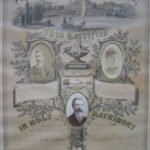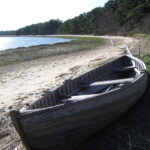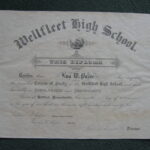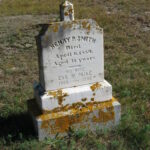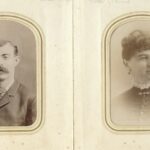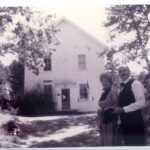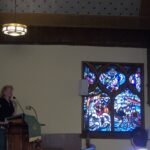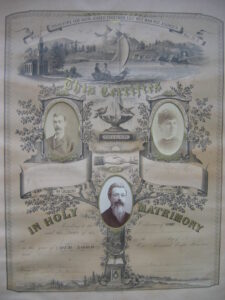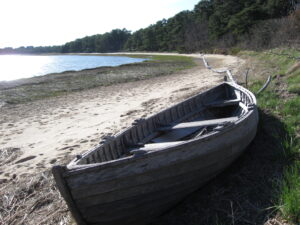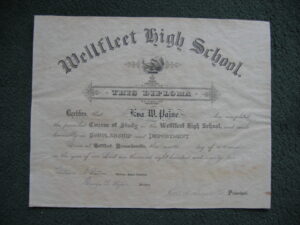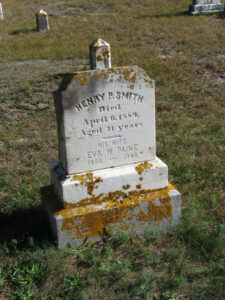I was once told by a social studies teacher that women never really worked until World War 1. I laughed right out loud in class. He asked, “What is so funny, Miss Paine? Do tell!” So, tell I did, all about housework. Having come from a family that kept many records, scribblings, diaries, out-dated cookbooks and kitchen manuals, I expounded for at least two whole minutes from the list of household chores I knew my ancestors had performed.
Consider the task of baking a loaf of bread back in the 1890′s when Eva was a young widow. We now push buttons to pre-heat our ovens after standing over our electric mixers for a few minutes of kneading the dough. Or even more modern, perhaps you own a bread making machine! Simply place the ingredients into the unit, and it does the mixing, kneading, allowing the rise, and baking while you focus elsewhere.
To bake that bread, Eva carried in the firewood (which she had probably split out in the yard into the proper size for a kitchen stove) to warm the stove, carried the water after pumping it to heat on the stove, hand mixed and kneaded the dough, let it rise while attending to other kitchen chores, and then hand kneaded once again before letting it rise to the proper loaf size for baking. Constant attention had to be paid to the oven gauge to insure an even heat, and judicious feeding of the stove was required until the bread was done.
There was not enough time to start any laundry on baking day- laundry took up a whole day of its own, usually Mondays! Much carrying and heating of water was required, and handling of large pots of water on the stove, which had to be stoked, again by wood carried in by the housewife. Scrubbing was performed on tin washboards, which are now used chiefly for zydeco music! All drying was done on outside or inside clothes lines. Ironing took another whole day, with the iron being heated on. . . you guessed it. . . the kitchen stove (back to the wood pile).
This vintage photograph shows the front parlor of Captain Otis Paine’s home, constantly kept sparkling and tidy, as there was no telling when a friend or neighbor would be entertained for the purpose of conveying important news, or just a social call. The polishing and dusting was a wonderful fill-in chore which could be done while the bread was baking, but not ever on laundry days. And so it went.
I asked my grandmother in the 1970′s. . . I was twenty and she was in her sixties. . . what modern convenience in her kitchen did she appreciate the most. I was thinking she might mention the washing machine, the refrigerator, or the dish washer. She surprised me by saying, “Running water!” And then, “You have no idea, Irene, of what the word “housework” used to mean!
And so, after my male social studies teacher listened to me for a few minutes way back then when I was in the eighth grade, he said, “Miss Paine, I do apologize. Of course women have been working for centuries. What I probably should have said was that women did not work FOR PAY much until World War 1.” I was satisfied with that correction.
Please know that I have other vintage photographs of my ancestor’s household settings of the 1880′s and 1890′s, all set in Paine Hollow of South Wellfleet. I am happy to make arrangements with any group (within a reasonable travel circle) who would like to have me to give a modern Power Point presentation of life back in the day of the great sea captains and their invaluable counter-parts: their hard working (but unpaid) wives. I can be contacted at irenepaine@gmail.com.
If you have not yet read the book, “Eva and Henry, A Cape Cod Marriage,” you can buy it from the first page of this website via an Amazon link. It is available as a hard cover book, a soft cover book, AND (we have made the electronic leap) as an eBook. Enjoy!
